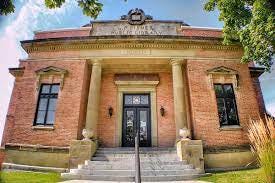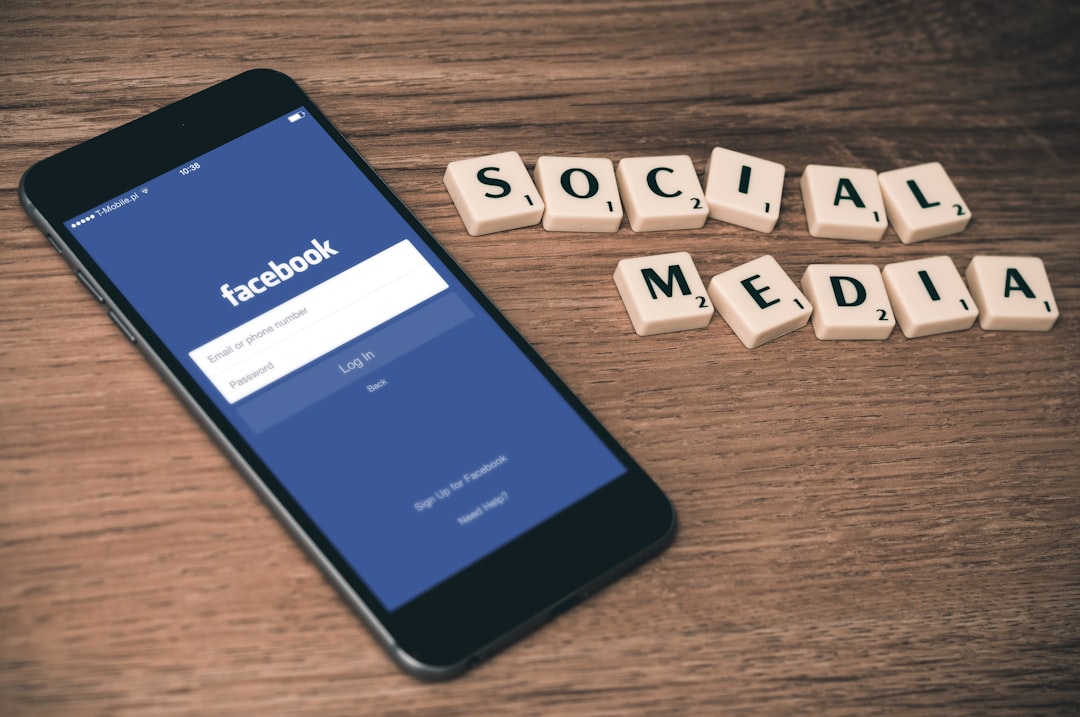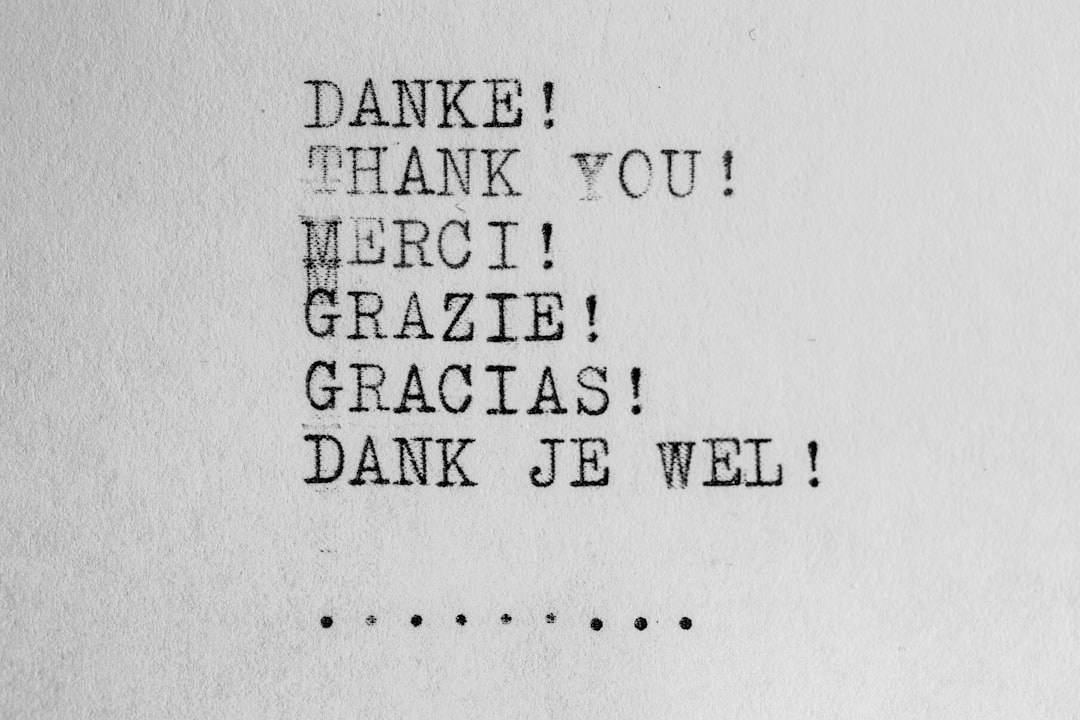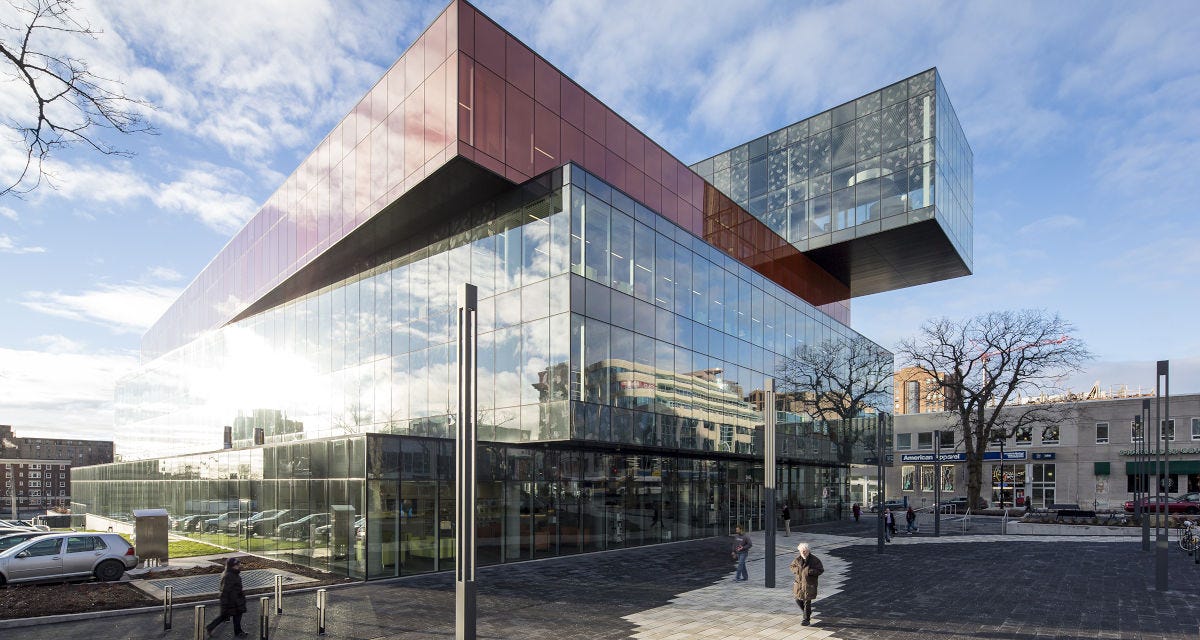Public libraries are awesome and here are things you might not know about them
Why I love an institution that provided the model for Blockbuster to charge late fees
The bus full of books was a thing of wonder, filled with colorful spines stacked on shelves that promised worlds more interesting than this one. When I was a kid we had a thing called a bookmobile that was based out of Woodstock’s town library1. The bookmobile, basically a converted school bus, would arrive at the corner store in Richmond Corner on a summer’s morning, filled with books for kids and adults. I used to love reviewing the titles and picking out my favorites. The bookmobile wasn’t just full of books, it was full of worlds.
But as fun as that was, it paled in comparison to visiting the library itself with its children’s section on the lower floor and the adult section upstairs. This was the place where I discovered the adventures of Danny Dunn, Encyclopedia Brown and the Three Investigators. My book addiction only grew from there.
I can’t remember a time when I didn’t love books and I can’t remember a time without visits to a public library. For many of us books were the original gateway to virtual reality. Your mind provided the images and sensations based on the stories you read. For Generation X and earlier cohorts books were how we learned about the world, or escaped from it as needed.
In a digital age people sometimes scoff at buildings stuffed with paper relics but public libraries are so much more than warehouses. They are not merely collectors of musty paper and dust; they do not exist simply to draw taxpayer dollars away from sports and other community needs. Incidentally, Parks and Recreation, you had a terrible take on libraries (though I loved the rest of the show).
The world needs more reminders of the importance of public libraries and the important role they play in society. Hopefully after reading this essay I’ll convert you to the library cause or else I’ll remind you of their magic.

I’ll admit I’m biased: I’m not only a public library patron but I’m an active supporter and volunteer. I have served on my local library board for many years, alternating as chair and vice-chair in addition to volunteering for local events. I also serve on two provincial library boards in the province of New Brunswick, including some advocacy work and fundraising. I believe we have a pretty nifty public library system in my home province so I’ll be bragging, I mean talking, about it in this essay.2 I am also friends, or at least friendly acquaintances, with a number of librarians who I think are great people. So although I’m not a librarian, I know a thing or two about libraries.
I’ll be talking about public libraries instead of the generic term library. The adjective public is crucial because it denotes a couple of things:
libraries that are at least partially funded by tax revenues
libraries that are open to the general public, regardless of whether or not you are currently paying taxes
When I use the term library in this post I’m talking about public libraries unless otherwise specified.
An extremely brief and incomplete history of libraries
Libraries began as places to store written knowledge, with some of the earliest known archives, in cuneiform script stored on clay tablets, dating back to 2600 B.C. Scrolls made of papyrus and parchment3 were other early means of storing knowledge, all of which were eventually supplanted by books and paper, with more and more writing converting to digital formats in the 20th and 21st centuries.
Libraries initially performed a practical job. People needed a place to store the tablets, scrolls and books and to protect them from the elements and, in many places, from the general public. Libraries were used by monarchs, governments and institutions to protect, or hoard, knowledge in a permanent form and access to a library was often controlled. Libraries and preservation of knowledge were also the responsibility of religious orders in times of disaster and strife.

Egypt’s Great Library of Alexandria was possibly the most famous library of all time, housing between 40,000 to 400,000 papyrus scrolls according to some estimates. It was reportedly part of the Mouseion, an early institution of learning in Alexandria, and likely founded and built by Ptolemy I and/or Ptolemy II sometime between 300 BC and 200 BC. Many noted Greek scholars spent time working in the Great Library and using its resources.
History has shown that civilizations tend to reset themselves periodically and libraries are often casualties of change. The original Great Library no longer exists: it is thought to have declined over the course of centuries as rulers and empires waxed and waned. The Great Library was likely in dreadful shape when Julius Caesar’s army destroyed parts of it while under siege in 48 BC. The Great Library’s fate is just one example of how libraries have come and gone during recorded history. The Bibliotheca Alexandrina now exists in Alexandria, a modern reinterpretation of that ancient institution. Sadly, there are countless examples of how any collection of knowledge is often one of the first things sacked in an invasion. But sometimes it returns.
Public libraries arose from the formation of national libraries in 18th century Great Britain and spread into other countries. They were initially part of museums, as was the first national library that was part of the British Museum starting in 1753. For one of the first times books were freely available to the public to examine and borrow. Over the next few centuries the idea of publicly funded and widely accessible libraries took hold in many countries, leading to networks of public libraries with many free resources available to citizens.
Characteristics of the modern public library
In the 21st century public libraries tend to have these things in common:
Public libraries are funded by a combination of tax revenues and donations
Most public libraries are normally part of a system of libraries
Public libraries house and lend many different kinds of items, not just books
Public libraries are part of the social glue of their communities
Some believe that public libraries are a waste of resources that could be better used elsewhere; in some cases, public libraries are attacked or used by their foes for other agendas
Also, library cards are free in public libraries! All you need to do is sign up!
I’m going to use the example of my local public library system to illustrate some of these points.
Funding
In New Brunswick, public libraries are funded as partnerships between provincial and municipal governments4 (note: in some communities public libraries exist in schools, adding a third partner). Here’s how the funding and governance of our public libraries works, in general terms:
The municipality that a public library resides within pays for the building(s) which contain the libraries, including upkeep and maintenance. The municipality also appoints a volunteer board of trustees which supports, promotes and advocates for the library and its staff.
The province pays for both the staff and contents of the library and manages the day to day operations via its staff. In addition, the province maintains regional and provincial staffing, systems and programs to support the entire library system.
The general public donates both funds and materials (often but not always books) to their local library or to the provincial library system as a whole if they wish.
Occasionally businesses and other organizations may make donations or partner with the library system to sponsor activities and services.
Library system
All of New Brunswick’s public libraries belong to a single provincial system that offers services in both official languages: English and French. NBPLS (New Brunswick Public Library Service) operates 52 public libraries and 11 public school-libraries, among other services, and it’s part of one of the provincial government ministries. The system manages a combination of physical and digital resources.
NBPLS manages public libraries for the entire province (university and college libraries are managed by their own institutions). The libraries are operated under a common set of regulations and policies, a fairly consistent public library model across Canada although it may differ a bit in larger provinces like Ontario, Quebec and British Columbia due to their size.
In many ways, NBPLS functions as a single gigantic, though dispersed, library. There’s a simple and easy to use system to request resources from any library from within the system. I use this frequently!
Housing and lending
For centuries libraries were the repositories of tablets, scrolls, manuscripts and physical books. Over time public libraries made these materials available to the general public and, in many cases, provided citizens with the ability to borrow materials for short periods of time.
Today’s libraries are the repositories for a growing and diverse portfolio of physical and digital materials. Magazines, newspapers, graphic novels, audio cassettes, CDs, VHS cassettes and DVD/Blu Ray discs were logical extensions to library holdings for both educational and entertainment purposes and have been available for decades. Library holdings continue to diversify into a wide array of lendable items. My library has added snowshoes, skateboards and kites to its lending portfolio thanks to grants and donations. Other municipalities lend musical instruments, athletic equipment, cooking appliances and much more. On the digital side our library system offers digital book lending and access to a number of databases.
Social glue

Libraries are a top notch source of local programs! Many activity groups congregate at libraries: readers; quilters and fiber enthusiasts; other crafters; musicians; yoga, dance and other physical movement activities; financial literacy assistance; and youth programming of all kinds. These are just the tip of the iceberg. By providing free computer and wireless access, public libraries are a natural gathering place for people of limited economic means as well as immigrants who are trying to adapt to a new culture. You’re as likely to see kids playing games, newcomers working on language lessons and applying for jobs, and a yoga class as you are to see people browsing the books and reading. And it’s all good!
Summer reading programs for kids and activities for young readers are a marvelous way to encourage the love of books and libraries. I bet that many of you, dear H.A.T.T.E.R.s5, were likely summer reading program graduates!
Sometimes this variety of services is challenging to manage and maintain. Public libraries attract people who literally have nowhere else to go due to poverty and disabilities. Some clients are challenging for multiple reasons but, to the best of their abilities, public libraries maintain open door policies and serve everyone they can.
One service that some libraries offer is food pantries, providing snacks to their patrons like a school breakfast program. The unfortunate reality is that some people struggle to get enough to eat each day and libraries like my own are piloting projects to help their patrons stay nourished.
Attracting and absorbing criticism
Any institution will attract criticism for a few key reasons:
They can’t be everything to everyone due to limited financial resources and limited physical space.
Despite my previous statement, institutions do spend a lot of time and money on things which aren’t always apparent, nor understood.
There will always be people with agendas that run contrary to the institution’s needs and interests.
Decisions, and the reasons for making decisions, are not always clearly communicated or understood.
Institutions, like Soylent Green, are made of people and people are their patrons.
Public libraries deal with all of this on a daily basis. Many of us have heard horror stories about difficult customers at a restaurant - this happens at libraries, too. Every library receives criticism some point because they will (or won’t) have certain books in their collections. In some countries, including the United States, members of the public - and certain interest groups - regularly rail against the collections policies of libraries and apply unreasonable pressure to have their way. I’m not going to dwell on this point, I’m just going to acknowledge the elephant in the library.
Some public library changes or practices worth discussing
The points I’m discussing below apply in North America and likely also apply in other parts of the world.
Public librarians no longer enforce total silence

If you’re a middle-aged person or older you may remember public libraries as quiet havens enforced by cardigan-clad stern spinsters shushing you for spoiling the quiet: making noise was held in the same regard as picking your nose or popping a pimple. The two main reasons for this were that public libraries were often places to: a) read quietly; b) study or do homework. Therefore it was respectful to be as quiet as possible.
Somewhere along the way these restrictions began to lift. People became less dogmatic about the need for quiet and public libraries responded. To this day I think many of us are conditioned to behave in in a quiet, respectful manner in a public library but loosening the restrictions a bit has made public libraries seem more accessible. Many libraries have designated rooms or quiet areas for those who do need to concentrate.
Late fees or lack thereof

Blockbuster was famous for many things and one of them, like every other video rental chain, was charging late fees. Libraries pioneered this practice a century before you could rent movies and for a similar reason: books and DVDs are assets that need to be cared for and replaced. People sometimes get lazy or forgetful and fail to return things that are borrowed. Some of them don’t recognize the need to return other people’s property.
Tardy book returns became enough of a problem that public libraries began charging late fees in an attempt to keep their library contents from disappearing. Library fines became a stigma or a badge of honor, depending on your point of view. Excessive fines could lead to a patron’s borrowing privileges being revoked.
In recent years some public libraries have modified their approach to charging late fees. The COVID-19 epidemic made charging late fees both impractical and unfair when there were many restrictions on travel and movement in most countries. Some advocacy groups also argued that late fees were actively discouraging public library use among underprivileged youth and other economically disadvantaged groups. Also, in many cases, late fees and fines do not provide a significant amount of revenue so removing fines does not pose any major threat to library operations.
In New Brunswick, public libraries suspended late fees during the COVID-19 epidemic and the fees have not been reinstated. However, if a library resource has been kept by a patron for an unusually long period of time they may be asked to purchase the resource.
Book donations and how to manage them

Public libraries receive many book donations every year. Some are gifts in kind: donations of books to be available for perusal or borrowing or at least archived. Libraries also receive many unplanned donations of books, movies, TV shows, magazines and more. Many libraries likely receive more books than they have shelf space for and so they regularly face a dilemma on how to handle book donations:
catalog and circulate
donate elsewhere
sell
dispose (“weeding the collection”)
The last three options may seem pretty horrible but often they are necessary when you consider the following:
Shelf space management is an ongoing challenge for libraries: so many books, so little space. It’s impossible to keep adding shelf space indefinitely unless the library can be renovated or enlarged, which is costly and can take a lot of time.
Donations often provide duplicate copies of existing books. Some libraries can support multiple copies of a book but most can’t. In a multi-library system like New Brunswick it’s possible to support multiple copies of a book if they are spread across multiple branches but there are still limits.
Donations are sometimes in bad shape: damaged covers, missing or damaged pages, and so on. While the intent may be good, there’s little value in circulating a damaged, dirty or incomplete book in a library.
Donated books are frequently old, outdated and of limited value to a library’s patrons.
People rarely donate one book at a time: they usually donate books after house cleaning or when their kids get older so you normally get boxes and bags of books. Which take up space.
In my experience libraries don’t usually have other places where they can send used books although they try to do that when possible. Damaged and dirty books have to be dumped with the garbage or recycled where possible, although libraries don’t have the staff to rip books apart for recycling (I’m also given to understand that tearing up books could be traumatic for some library staff). Weeding is a fact of life in libraries.
In the end, many libraries have periodic (or ongoing) used book sales to clean out their inventories and raise some funds. It may seem ungrateful to get rid of donated books but it’s often necessary.
How we can all help public libraries
If you’ve read up to this point I think it’s fair to say that you like libraries, at least a little bit. Libraries - and the people that run them - do a lot for all of us. Often the work of a librarian is interesting and rewarding but a lot of hard work goes into maintaining even basic library services. Libraries give a lot to their communities. Here are some ways that you can return the favor.
Cash donations or donations in kind

Libraries can always use money. Money helps with collection development, providing services and even with capital investments to renovate and expand their facilities. In many jurisdictions libraries are registered charities and therefore donations can be used to obtain income tax credits.
My community was very fortunate during the past decade: a tremendous fund raising campaign occurred to both expand and modernize Woodstock’s L. P. Fisher Library, doubling it in size and finally adding decent climate controls so patrons and staff no longer sweltered in summer heat!
Other municipalities have invested funds in similar ways. A few years ago I visited the new Central Library in Halifax, Nova Scotia and it’s a beautiful spot, inside and out:
Buildings like this don’t happen without money!
For those of you who might not have the funds to support libraries, there are other important ways you can help.
Volunteering time and energy

Remember all of the programming I mentioned earlier? It’s impossible to deliver all of it without volunteer support. Every library needs arms, legs, hearts and minds to help deliver services. Whether you support (or lead) programming, volunteer to help with fundraising, set up for events or even offer to help stock the bookshelves6, there’s always work to do and your efforts are always appreciated.
Hot tip: volunteering can be a great way to meet new people.
Promotion and support of programming

Social media can be a tricky thing but it’s great for telling your friends and neighbors about what’s going on at your library. Fire up your Facebook account, ignite7 your Instagram account, use whatever app you have but use them to help public libraries. Publicize their book sales, their programming, special events and speakers, and especially their calls for assistance. Word of mouth works great, too. Help put up posters. Do what you can. Share your love of libraries with the rest of the world!
Advocacy - speaking truth to power

If you’re on a public library board you’re automatically an advocate for your library and its staff. It’s literally in the job description for most library boards. Your role is to help convince people to help a library when a library needs help. In many jurisdictions securing enough funding to even keep the lights on and the doors open is a struggle. Libraries become a target when budgets are tight and parts of society object to library policies. They need your support when times get tough.
So get out there: write letters, rub elbows with the power brokers, turn on the charm, sound the alarm, do what it takes to help keep library services going. Fun fact: when library employees are government employees, there are limits they can do to advocate for libraries, they have to follow orders AND keep the libraries running. It’s tough and painstaking work in my limited experience but advocating for libraries and even helping to make a tiny difference can be very rewarding.
Say thanks

Thank your public library staff! Send them cards, buy them gifts, throw them parties, even say a kind word every now and then about the services they provide. Treat them like the decent, hard working human beings they are. Brag about their accomplishments. My own library director has published several books, teaches yoga and martial arts and is a vibrant supporter of her community in addition to running a great local library. Her staff is talented and devoted. Every library has these gems, whether visible or hidden and they appreciate when you acknowledge what they do. Thank them.
The library story never ends
I wish I had a miraculous story to share with you about how public libraries turned my life around and made me the swell guy that I am today and how you could also prosper if you just walked into a library and checked out a book.
Um. Well, actually…
Just kidding, reality is usually more subtle and gradual than a rags-to-riches story. The truth is that I do feel that my love of libraries has made me a better person but it’s more like sculpting a slab of marble or like how a tiny trickle of water made the Grand Canyon over eons. Slowly, a bit at a time, change happens through reading and thinking about what you’ve read.
Public libraries are one of the pillars of civilization and at a personal level they can be one of the building blocks of a good and rewarding life. Libraries will always be a gateway to fiction and non-fiction books that can make you better, if you take the time and let the writings work their magic. One story, one chapter, one poem, one essay at a time, libraries and their contents can help expand your mind and your horizons by showing you things that you might not be able to see in person. Libraries house some of the keys to the imagination, unlocking doors leading to chambers of knowledge, entertainment and growth via their collections.
Public libraries are full of potential and will always need our support. If you haven’t been to a library in a long time, go visit and check them out, you’ll be amazed. If you’re already a library patron, think of other ways you can help. And if you’re already a passionate support of libraries…
Then thank you! Take a bow, friend! You’re awesome!
Now let’s keep doing the work, the story of public libraries must never end.
What do you think? Do you have any cherished library memories? Do libraries get enough credit for the services they provide? Or do you have a different point of view? Please share your thoughts in the comments!
P.S. If you enjoyed this essay, here are some previous posts you might enjoy:
Music and other sounds good for working (my take, at least)
I exchanged three paper letters by mail with another writer, here’s how that went
To help ground you geographically, this post provides background about Atlantic Canada.
I am neither writing for or at the behest of any public library or public library systems - these are my own thoughts and shouldn’t be construed as the policy or thinking of any public library.
In researching this essay I learned that parchment is made from animal skin. Clearly I need to do more reading.
There is some hair splitting going on here as significant municipal government funding essentially trickles down from provincial government funds but let’s not dwell on that.
H.A.T.T.E.R. = How About This Terribly Enthusiastic Reader
Be careful about offering to stock the bookshelves: public librarians are often unionized so please ask before you volunteer to do work that’s exclusively their job. Librarians would love your help in unstacking, moving, and restacking chairs, I can practically guarantee this.
Ignite in the sense of car ignition, not setting a fire. Of course.






Gotta say, I have loved libraries ever since the first time I set foot in one - the little library in my junior school, way back when.
What amazes me about libraries is how well they've adapted over the decades, providing lots of new services. They are more than book places; they are human spaces.
I suspect people who bear animus towards them haven't been in one for decades.
Libraries are okay, she says, getting ready to go work in her library for the day, after which she’ll go pick up holds at her public library.